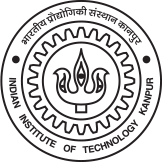
प्रदीप स्वर्णकार
PhD (IIT Kanpur, 2008)
Professor, Department of Humanities and Social Sciences
शोध करना दिलचस्पी
Environmental Sociology, Climate Change Policy, Social Media, Social Networks, Sustainability Transition
विशेषज्ञता
Environmental Sociology, Social Network Analysis
शिक्षा
PhD, Indian Institute of Technology Kanpur, 2008
Thesis Title: Environmental Beliefs and Practices in Domestic Water Consumption: A Study of People’s Environmental Concerns in Two Regions of Rural West Bengal
MA, University of Kalyani, 2000
पिछला कार्य अनुभव
चयनित प्रकाशन
Edited Book:
Swarnakar, P., Zavestoski, S. and Pattnaik, B.K. (2017). Bottom-up Approaches in Governance and Adaptation for Sustainable Development: Case Studies from India and Bangladesh. New Delhi, India: SAGE Publications.
Journal Articles
Goodman, J., da Rimini, F., & Swarnakar, P. Yla-Antilla, T. (2021) Climate Policy in Australia: Dynamics of Failure and Possibility, Australian Journal of Politics & History. Accepted, In Press.
Joshi, B., & Swarnakar, P. (2021) Staying Away, Staying Alive: Exploring Risk and Stigma of COVID-19 in the context of beliefs, actors and hierarchies in India, Current Sociology. https://doi.org/10.1177/0011392121990023
Kumar, A., Mallick, S., & Swarnakar, P. (2020).Mapping Scientific Collaboration: A Bibliometric Study of Rice Crop Research in India, Journal of Scientometric Research, 9(1), 29-39.
Kumar, A., Swarnakar, P., Jaiswal, K., & Kurele, R. (2019). SMIR model for controlling the spread of information in social networking sites. Physica A: Statistical Mechanics and its Applications.https://doi.org/10.1016/j.physa.2019.122978
Kukkonen, A., Ylä-Anttila, T., Swarnakar, P., Broadbent, J., Lahsen, M., & Stoddart, M. C. (2018). International organizations, advocacy coalitions, and domestication of global norms: Debates on climate change in Canada, the US, Brazil, and India. Environmental Science & Policy, 81, 54-62.
Ylä-Anttila, T., & Swarnakar, P. (2017) Crowding-in: How and why Indian civil society organizations mobilized on climate change. British Journal of Sociology, 68(2), 273-292.
Broadbent, J, Sonnett, J. (…), Swarnakar, P (…), Zhengyi, S. & Hasegawa, K. (2016) Conflicting Climate Change Frames in World Society, Socius: Sociological Research for a Dynamic World. DOI: https://doi.org/10.1177/2378023116670660
Swarnakar, P., Kumar, A., Tyagi, H. (2017) Network Dynamics in Friend Recommendation: A Study of Indian Engineering Students. International Journal of Information Technology and Management, 16(3), 287-300.
Swarnakar, P., Kumar, A., Kumar, S. (2016) Why generation Y prefers online shopping: A study of young customers of India. International Journal of Business Forecasting and Marketing Intelligence, 2(3), 215-232.
Swarnakar, P., Kumar, A., Wadhwa, M. (2016) Investigating preferred relationship through fuzzy sets in Facebook. International Journal of Web Based Communities, 12(2), 165-179.
Ylä-Anttila, T., Swarnakar, P, Javed, S., Oivo, K. (2015). How to Avoid Seeing Like a State: Learning from CSOs. Economic and Political Weekly, 50(17), 14-16.
Book Chapters
Swarnakar, P. (2019) Climate Change, Civil Society, and Social Movement in India in India in a Warming World: Integrating Climate Change and Development edited by Navroz Dubash, Oxford University Press, New Delhi.
Zavestoski, S. & Swarnakar, P. (2017) Governance for Sustainable Development in the Anthropocene. in Bottom-up Approaches in Governance and Adaptation for Sustainable Development: Case Studies from India and Bangladesh edited by P. Swarnakar, S. Zavestoski, & B. K. Pattnaik. SAGE Publications, New Delhi.
Zavestoski, S. & Swarnakar, P. (2017) Neither ‘Top-down’ nor ‘Bottom-up’: A ‘Middle-out’ Alternative to Sustainable Development in Bottom-up Approaches in Governance and Adaptation for Sustainable Development: Case Studies from India and Bangladesh edited by P. Swarnakar, S. Zavestoski, & B. K. Pattnaik. SAGE Publications, New Delhi.
Swarnakar, P., & Sharma, A. K. (2011). Environmental concern: Application of new environmental paradigm scale in Rural West Bengal in Migration, Health and Development, edited by S. Lahiri, B Paswan and K C Das, Rawat Publications, New Delhi/Jaipur.
पुरस्कार एवं फैलोशिप
Fulbright-Nehru Academic and Professional Excellence Fellowship (Teaching and Research), United States-India Educational Foundation; hosted by University of San Francisco, USA, Sep 2017-May 2018.
KONE Foundation Senior Researcher grant at Department of Social Research, University of Helsinki, Finland, June 2015- May 2016.
German Research Foundation (DFG) grant at Helmholtz Centre for Environmental Research GmbH –UFZ/ Leipzig / Germany, May-July 2013.
आमंत्रित व्याख्यान
“Quantitative and qualitative methods of social science to study climate change policy”, PhD Workshop: Problems of Method in Climate and Energy Research, Climate Justice Research Centre, Faculty of Arts and Social Sciences, University of Technology Sydney, Australia, Room 113, Building 10, Level 9, 4 June 2019.
“India's climate movement: Dynamics, proxies, possibilities”, Faculty of Arts and Social Sciences, University of Technology Sydney, Australia, Room 203, Building 10, Level 14, 23 May, 2019.
“From Climate Crisis to Political Crisis: Climate Policy Networks and State Extractivism in Australia”, Climate Change and Energy Futures Workshop, The Nexus Centre, Faculty of Humanities and Social Sciences, Memorial University of Newfoundland, Canada, 11 October 2018 (with J Goodman, F da Rimini).
“Crowding-in: How and why Indian civil society organizations mobilized on climate change”, Institute on the Environment, University of Minnesota, USA, LES Building R-380, 9 May 2018.
“Sustainability 3.0: Looking beyond top-down and bottom-up approach”, Humanities and Social Science Association Speaker Series, University of California Berkeley, USA, 26 March 2018 (with S Zavestoski).
“Actors, narratives and frames: Computational text analysis in climate change news reporting”, Computational Text Analysis Group, Barrows Hall 356B, University of California Berkeley, USA, 7 February 2018.
“Sustainability 3.0: Looking beyond top-down and bottom-up approach”, Sustainability Café, Lo Schiavo Science Center, University of San Francisco, California, USA, 16 November 2017.
“‘Bottom-up' approaches to sustainable development: Alternative perspectives from global South”, Global and Regional Studies, Galilio Hall, Saint Mary’s Colleage, California, USA, 8 November 2017.
“Crowding-in: How and why Indian civil society organizations mobilized on climate change”, Department of Sociology and Work Science, University of Gothenburg, Sweden, 17 March 2016.
“Sustainability Experimentation Venture Network (SEVeN): Nurturing local knowledge for global change”, Tervapääsky, Finnish Environment Institute (SYKE), Mechelinkatu, Helsinki, Finland, 14 October 2015.
“Comparing Climate Change Policy Networks: An Overview”, (with Tuomas Ylä-Anttila, Antti Gronow and Anna Kukkonen) Brown Bag seminar, Seminar Room 344, Unioninkatu 35, Faculty of Social Science, University of Helsinki, Finland, 15 October 2015.
“Sociology of Contamination: Overview of past and present”, Department of Urban and Environmental Sociology, Helmholtz Centre for Environmental Research – UFZ, Leipzig, Germany, 17 June 2013.
परियोजना
Principal Investigator of Indo-Australia joint project “Climate Change Policy Network: Exploring Post-Paris Climate Discourse in India and Australia” funded by Indian Institute of Technology Kanpur Initiation Grant and Climate Justice Research Centre, University of Technology Sydney with Prof. James Goodman, University of Technology Sydney, 2019-2022.
Principal Investigator of Indo-Japan joint project “Climate-Energy Policy Network: A Comparative Study of India and Japan” funded by Indian Council of Social Science Research (ICSSR) & Japan Society for Promotion of Science (JSPS) with Prof. Koichi Hasegawa, Tohoku University, Japan, 2019-2021.
Principal Investigator of Indian research group of “Climate Change Policy Networks (COMPON)” funded by National Science Foundation, USA. International PI is Professor Jeffery Broadbent, University of Minnesota, USA. http://compon.org, April 2014- March 2015.
Principal Investigator of the project “Sociology of Social Network Sites: A Social Capital Approach to the Study of Young Adults of India” funded by Indian Council of Social Science Research, Ministry of HRD, Government of India, 2011-2014.



